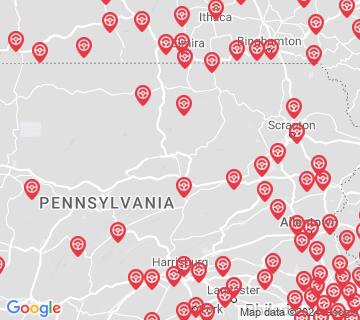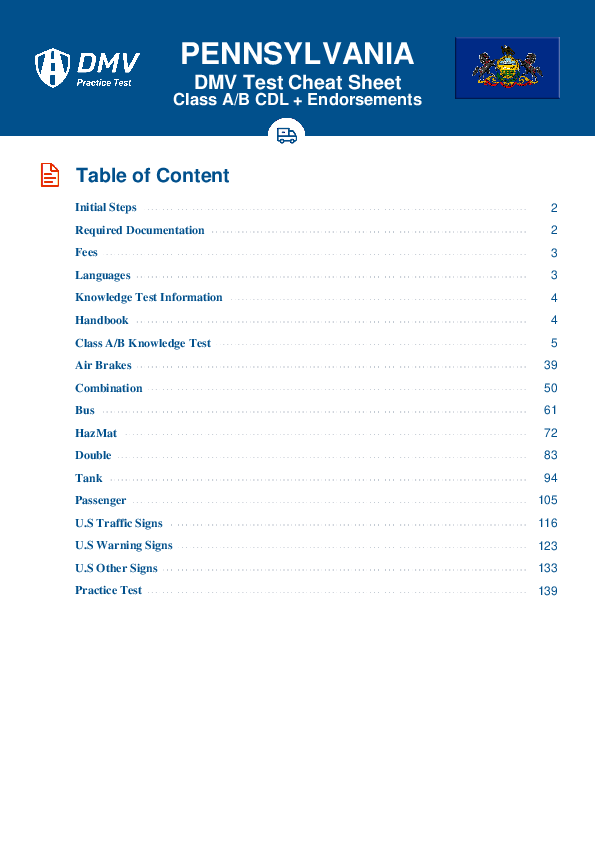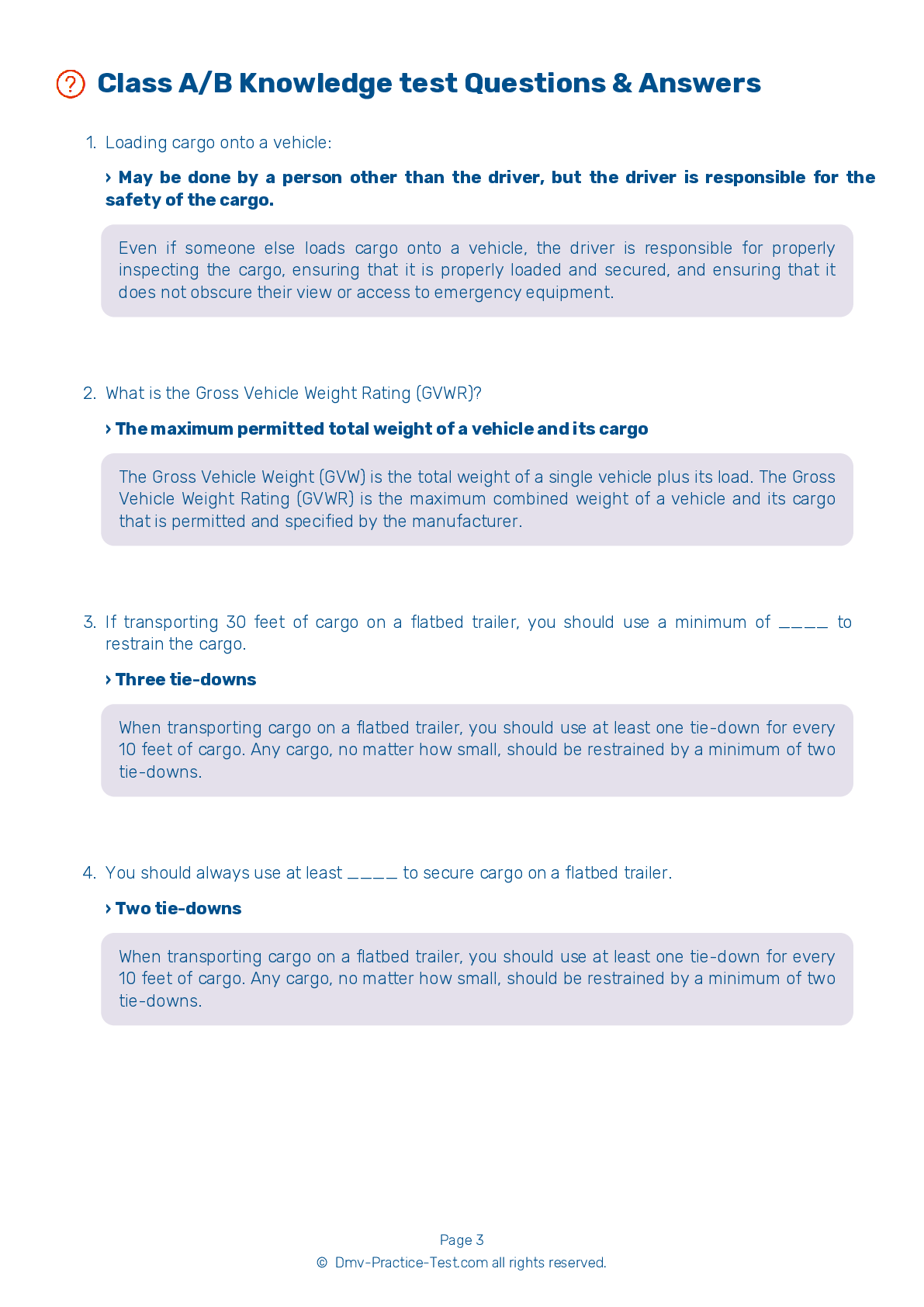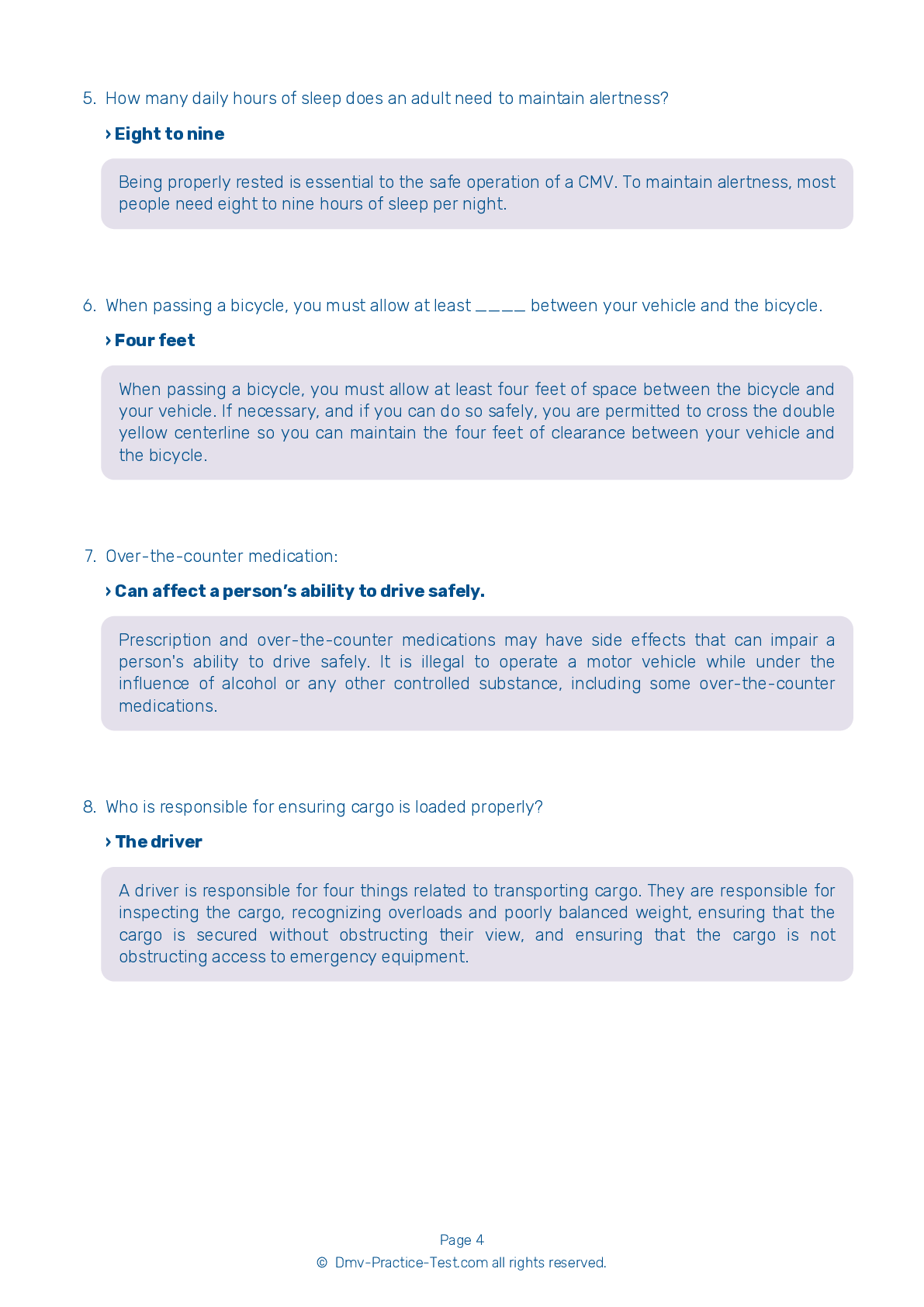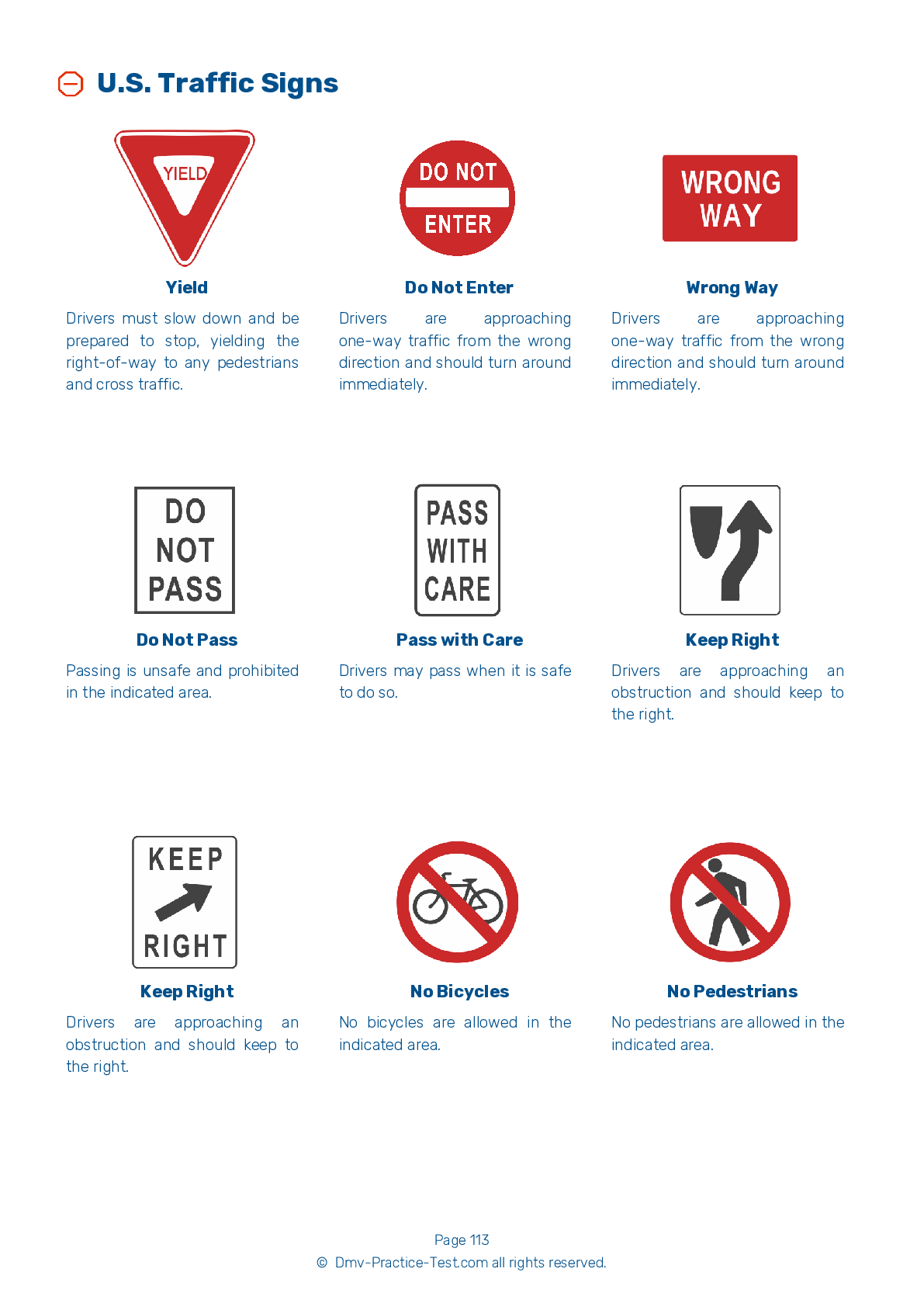HazMat #2
Hazmat Test | Pennsylvania 2026 #2
On our website, we provide FREE practice - CDL hazmat test online! The official exam test consists of several obligatory parts, with all of them checking your knowledge of different blocks of road rules. If you need to obtain a PA CDL hazmat endorsement in 2026, practice as much as possible. Free sample tests published on our website will help you check and improve your knowledge and boost your grades. Please bear in mind that Pennsylvania requirements for issuing a hazmat endorsement for CDL may vary from those established in other states.
30
24
20
1 . If oil and water build up in your vehicle's air tanks, the brakes:
Will be extremely sensitive.
Air tanks should be drained daily to remove water and oil buildup. An excess of oil and water in the air tanks can interfere with proper brake function.
2 . If an Anti-Lock Braking System (ABS) is equipped on a trailer but not on a tractor:
The tractor and trailer can still be used together.
A vehicle being equipped with anti-lock brakes on only the tractor or only the trailer provides additional control during braking.
3 . While driving, if it is discovered a vehicle's ABS is not working, the driver should:
Use their parking brake to stop.
If an Anti-Lock Braking System (ABS) is not working, the vehicle's basic braking functions are still intact. The driver should continue to drive and brake in a normal fashion.
4 . The minimum size of placards identifying hazardous materials is:
10 and three-quarter inches.
Hazardous materials placards must be at least 10 and three-quarter inches square.
5 . To correct a drive-wheel braking skid, a driver should do all of the following, except:
Accelerate.
To correct a drive-wheel braking skid, you should first remove your foot from the brake pedal to allow the locked wheels to begin rolling again. Quickly steer in the direction you want to go, then countersteer to prevent your vehicle from skidding in the opposite direction.
6 . When inspecting a tank, a driver should:
Make sure there is no rust on the outside of the tank.
Because there are many different types of tanks, each of which with its own specific features, a driver should always consult the operator's manual for information on how to inspect a particular tank.
Search the best driving school in your neighbourhood
2026 Pennsylvania | Frequently Asked Questions
To acquire a CDL Tank endorsement in Pennsylvania, you must first have a Commercial Driver's License (CDL). Then, study for the tank endorsement test using the Pennsylvania CDL handbook. Schedule and pass the test at a PennDOT Driver License Center. A passing score is 80% or higher. After passing, pay the required fee to add the endorsement to your CDL.
To obtain a CDL Tank license in Pennsylvania, you need to have a valid Commercial Driver’s License (CDL) first. Then, pass the Tank Vehicle (N) endorsement knowledge test that covers the specific knowledge required for safe operation of tank vehicles, including topics like handling high center of gravity and inspecting tank vehicles.
While Pennsylvania doesn't require specific training or experience for a CDL Tank endorsement, it's recommended to prepare for the knowledge test. This can be done through self-study or enrolling in a training program. Practical experience driving tank vehicles under supervision can also be beneficial. Remember, you must already hold a CDL to add this endorsement.
Yes, to obtain a CDL Tank endorsement in Pennsylvania, you must pass the Tank Vehicle (N) endorsement knowledge test. This written exam focuses on the specific knowledge needed for the safe operation of tank vehicles, including understanding the high center of gravity and how to inspect such vehicles.
The written test for the CDL Tank endorsement covers various subjects including inspecting tank vehicles, understanding the differences between baffled and unbaffled tanks, driving tank vehicles safely, and handling emergencies. It also includes understanding how liquid surge affects vehicle handling. The aim is to ensure drivers can safely handle large, often hazardous, liquid loads.
The CDL Tank endorsement does not typically involve a specific skills or maneuvers assessment. It primarily requires passing a written knowledge test. This test covers subjects like high center of gravity, safe operation, inspecting tank vehicles, and the effects of surge. However, overall CDL skills are assessed during the general CDL road test.
Yes, drivers with a CDL Tank endorsement must adhere to certain rules and regulations. For instance, they must follow all safety protocols for handling and transporting liquid materials. Also, if the tank is not baffled, the vehicle's movement can be affected due to liquid surge. Violation of these rules can lead to penalties or even loss of the CDL Tank endorsement.
No, it is illegal to transport liquid or gas materials in a tank vehicle without a valid CDL Tank endorsement in Pennsylvania. The endorsement ensures that the driver has the necessary knowledge and skills to handle such materials safely. Violating this rule can lead to serious penalties, including fines and loss of commercial driving privileges.
In Pennsylvania, you can add a CDL Tank endorsement to your current commercial driver's license. You do not need to apply for a new license. However, you will have to pass a knowledge test specific to tank vehicles and pay the required fees to add the endorsement to your existing CDL.
Yes, there are specific regulations and prerequisites in place for handling hazardous materials with a CDL Tank endorsement in Pennsylvania. These include passing a written test on hazardous materials, undergoing a background check, and completing a TSA threat assessment. Additionally, drivers must follow federal regulations regarding the transportation, labeling, and placarding of hazardous materials.
